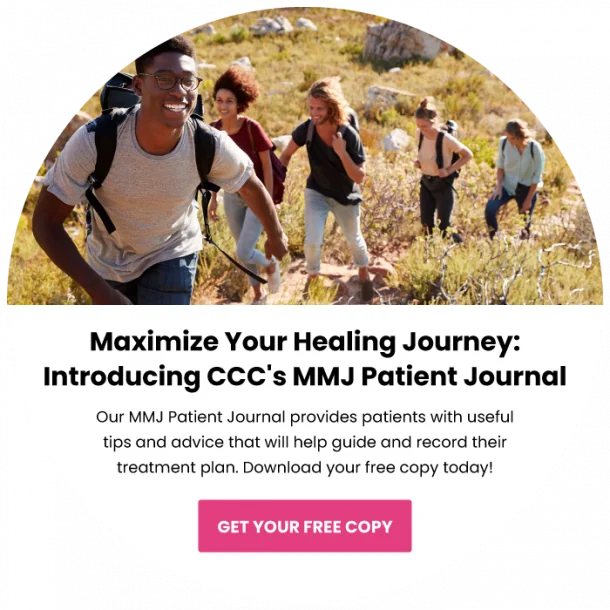The state of Pennsylvania recently announced the addition of “Anxiety Disorders” to the list of qualifying health conditions, which make a patient eligible to use medical marijuana as part of treatment.
This means that nearly 1.7 million Pennsylvanians now qualify for MMJ Certification … do you? Most self-medicating patients already can attest to the calming, relaxing effects of many marijuana strains. These sedative effects are one of marijuana’s most well-known characteristics. If you want to get legal certification and are unsure of what qualifies as an anxiety disorder, and others do not know that cannabis can help them find relief from many of the associated symptoms.
Let’s first take a look at the 5 major types of anxiety disorders:
1. Generalized Anxiety Disorder (GAD)
Generalized Anxiety Disorder, GAD, is an anxiety disorder characterized by chronic anxiety, exaggerated worry and tension, even when there is little or nothing to provoke it.
2. Obsessive-Compulsive Disorder (OCD)
Obsessive-Compulsive Disorder, OCD, is an anxiety disorder and is characterized by recurrent, unwanted thoughts (obsessions) and/or repetitive behaviors (compulsions). Repetitive behaviors such as hand washing, counting, checking, or cleaning are often performed with the hope of preventing obsessive thoughts or making them go away. Performing these so-called "rituals," however, provides only temporary relief, and not performing them markedly increases anxiety.
3. Panic Disorder
Panic disorder, commonly referred to as panic attacks, is characterized by unexpected and repeated episodes of intense fear accompanied by physical symptoms that may include chest pain, heart palpitations, shortness of breath, dizziness, or abdominal distress.
4. Post-Traumatic Stress Disorder (PTSD)
Post-Traumatic Stress Disorder, PTSD, is an anxiety disorder that can develop after exposure to a terrifying event or ordeal in which grave physical harm occurred or was threatened. Traumatic events that may trigger PTSD include violent personal assaults, natural or human-caused disasters, accidents, or military combat.
5. Phobias
Social Phobia (or Social Anxiety Disorder)
Social Phobia, or Social Anxiety Disorder, is an anxiety disorder characterized by overwhelming anxiety and excessive self-consciousness in everyday social situations. Social phobia can be limited to only one type of situation – such as a fear of speaking in formal or informal situations, or eating or drinking in front of others – or, in its most severe form, may be so broad that a person experiences symptoms almost anytime they are around other people.
Specific Phobias
Phobias are characterized by major anxiety when you’re exposed to a specific object or situation and an extreme desire to avoid it.
Other Anxiety Diagnoses & Sub-types
- Selective Mutism is a consistent failure of children to speak in certain situations, such as school, even when they can speak in other situations, such as at home with close family members. This can interfere with school, work and social functioning.
- Separation Anxiety Disorder is a childhood disorder characterized by anxiety that's excessive for the
child's developmental level and related to separation from parents or others who have parental roles. - Substance-induced anxiety disorder is characterized by symptoms of intense anxiety or panic that
are a direct result of misusing drugs, taking medications, being exposed to a toxic substance or
withdrawal from drugs. - Other specified anxiety disorder and unspecified anxiety disorder are terms for anxiety or phobias that don’t meet the exact criteria for any other anxiety disorders but are significant enough to be distressing and disruptive.
Still, some of you out there are thinking, “Marijuana for anxiety? Weed just makes me anxious to begin with!” Truth is – some types help anxiety – while others might trigger additional psychological distress. Researchers have found that a higher ratio of CBD vs THC seems to work best for this condition. Click here for more information on those findings – as well as how cannabis works to treat anxiety, and suggestions for finding the best strains and terpenes to treat the symptoms of anxiety.
Now the only thing to be anxious about is not having your card yet! If you think you now qualify for medical marijuana in the state of PA and are looking to get certified, call Compassionate Certification Centers today. We will help you through each step of the process, making it really easy. In fact, we can obtain medical records for you, and are willing to evaluate them before you schedule. The number to call is 888-316-9085, or you can log-on to our website at www.compassionatecertificationcenters.com and use our live web-chat while you browse the rest of our products and services. CCC has over ten locations – so you can even drop in with questions or to get certified on the spot!
Sources: Leafly, HHS.gov

